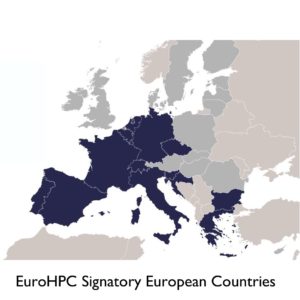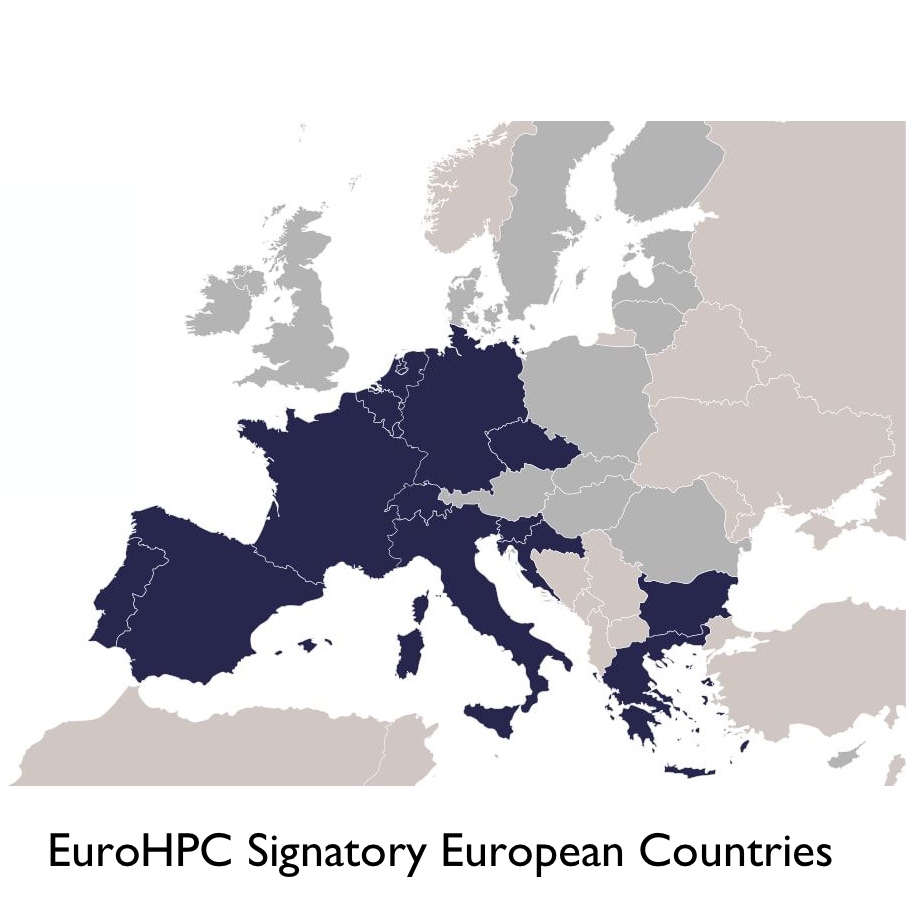 Today the European Union announced that the Czech Republic is the 14th country to sign the European declaration on high-performance computing. The initiative aims at building European supercomputers that would rank among the world’s top three by 2022-2023. With this signature, the Czech Republic announced that it will join EuroHPC Joint Undertaking – a new legal and funding structure that was launched earlier this month.
Today the European Union announced that the Czech Republic is the 14th country to sign the European declaration on high-performance computing. The initiative aims at building European supercomputers that would rank among the world’s top three by 2022-2023. With this signature, the Czech Republic announced that it will join EuroHPC Joint Undertaking – a new legal and funding structure that was launched earlier this month.
We welcome the participation of the Czech Republic in this ambitious European initiative,” said Vice-President Ansip, responsible for the Digital Single Market, and Mariya Gabriel, Commissioner for Digital Economy and Society. “By aligning our European and national strategies and pooling resources and know-how, we will be able to produce European HPC technologies and applications and integrate them into leading-edge machines to build a HPC vibrant ecosystem.”
The cooperation with a total budget of approximately EUR 1 billion will acquire, build and deploy across Europe world-class High-Performance Computing infrastructure and enhance the development of the technologies and machines (hardware) as well as the applications (software) that would run on these supercomputers.
Supercomputers are dealing with highly demanding scientific and engineering calculations that cannot be performed using general-purpose computers. They are strategic resource for the future of EU’s scientific leadership and industrial competitiveness and are increasingly needed to process ever larger amounts of data. Supercomputing can benefit the society in many areas from health care, renewable energy to car safety and cybersecurity. Other Member States and countries associated to Horizon 2020 framework program are encouraged to join forces and sign the declaration.
We are very glad to join the EuroHPC initiative and become a Member State of the European High Performance Computing Joint Undertaking once it is established by the adoption of respective EU Council Regulation,” said Robert Plaga, Czech Minister of Education, Youth and Sports. “HPC is a very dynamic R&D domain, which importance for further enhancement of European research and business communities has become essential over the recent years. Computer simulations enable researchers and innovators to perform an experiment in a virtual reality in a cheaper, faster, safer and environmental-friendly way without the need of actual making it.
“Supercomputing helps reduce costs of technology development and to make experiments that would be barely doable in the real life. Top-class HPC e-infrastructure has become substantial for the 21st century scientific and industrial development, not to mention its role in the security area. Nowadays, it is clear that Europe is lagging behind. Therefore, we believe that the envisaged European High Performance Computing Joint Undertaking will facilitate the pan-European cooperation in the endeavor to become a worldwide leader in HPC. We are prepared to provide the Czech national HPC capacities and capabilities for this joint mission and contribute to accomplish it successfully.”
Why is there a need for the EU to take initiative on HPC?
Despite efforts and investments made so far, the EU does not have the most performant supercomputers, and those existing depend on non-European technology. The available supply of computation time cannot satisfy an ever growing demand. To fill the gap, European scientists and industry increasingly process their data outside the EU. This can create problems related to privacy, data protection, commercial trade secrets, and ownership of data in particular for sensitive applications.
The European HPC technology supply chain is weak and the integration of European technologies into operational HPC machines remains insignificant. Without clear prospects of a lead market and of selling an exascale machine to the public sector, the European suppliers will not take the risk to develop the machines on their own.
Moreover, today each Member State is investing on its own for developing and acquiring HPC infrastructure. Despite significant investments both at national level but also at the Union level, compared to its competitors from USA, China or Japan, Europe is clearly underinvesting in HPC with a funding gap of EUR 500-750 million per year. The scale of the resources and financial investments that are needed to realise a sustainable exascale level HPC ecosystem has now become so important that no single country in Europe has the capacity to sustainably build it in timeframes that are compatible with those of non-EU competitors. Therefore, the Member States need to coordinate their HPC investment strategies at European level and to pool resources.
Pooling and rationalizing efforts at EU level is a must. A shared infrastructure and common use of existing capabilities would benefit everyone, from industry, SMEs, science, public sector and especially the (smaller) Member States without self-sufficient national HPC infrastructures. It would secure in particular EU’s own independent access to top HPC technology.




